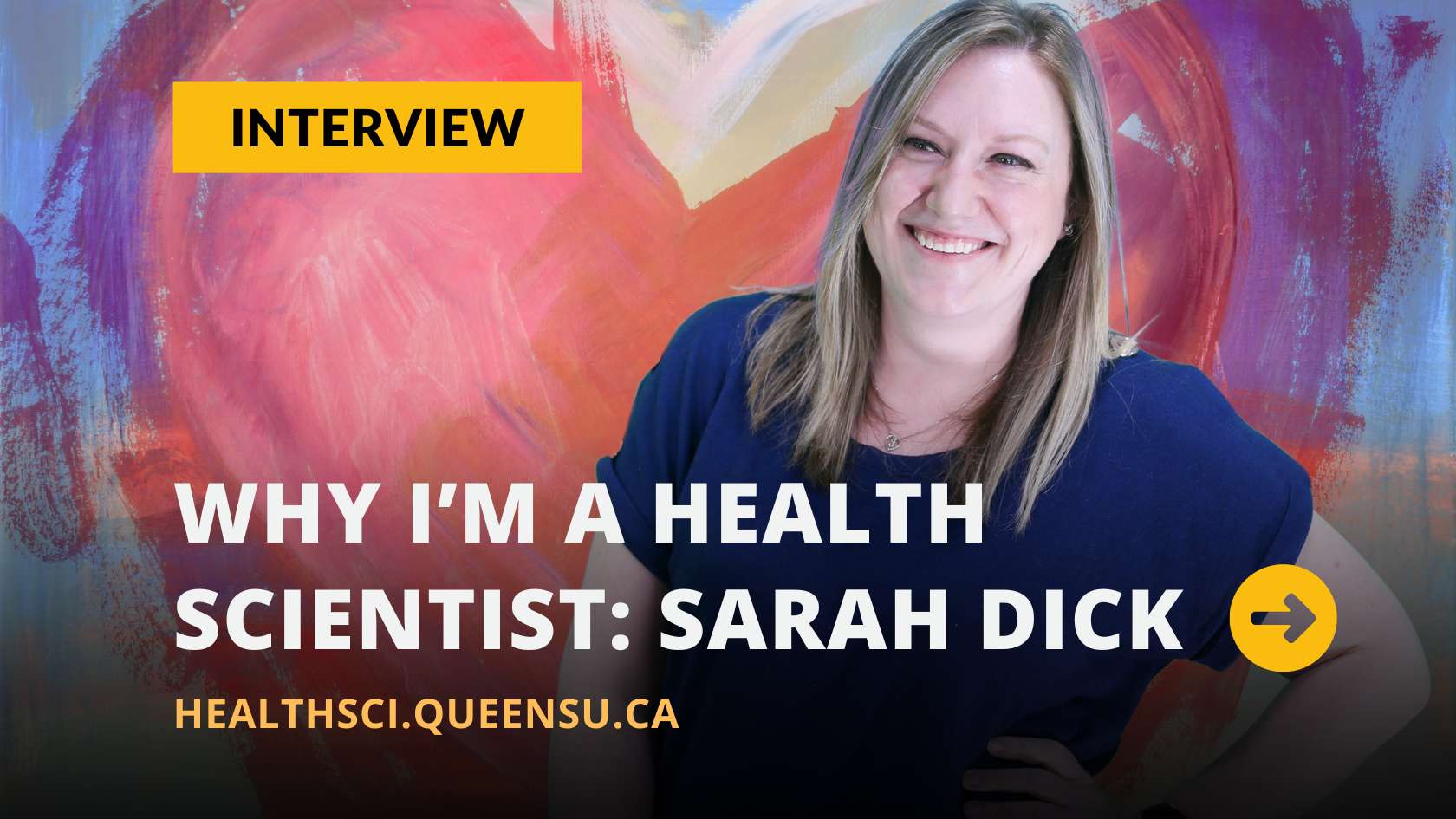
Scientific discovery is in Dr. Sarah Dick’s blood – and the organ that pumps it is front and centre in her work. In Why I’m a Health Scientist, the associate professor in Biomedical and Molecular Sciences gets to the heart of her research – from the power of “aha” moments to her first experience with a microscope to her vision for improving cardiovascular health.
If I had to describe my research to a stranger, I would tell them… I study a type of immune cell called a macrophage and its role in heart disease. There are two main types of macrophages – one that starts fires (we call this inflammation) and one that rebuilds once the fire is put out. My research is to better understand these builders in the heart and how they coordinate tissue repair after an injury, such as a heart attack.
I was inspired to become a researcher by… the first time I looked down a microscope. I was fascinated by how cells are constantly working and moving to orchestrate life. As a kid we’re told ‘we breath in oxygen and breath out carbon dioxide’ but I wanted to know HOW. How does the oxygen pass from the air to our cells, and how does that create movement and keep our heart beating and our brains firing? And once we know that HOW, can we use this knowledge to learn about disease and come up with new treatments? It wasn’t until undergrad I really learned academic research was a viable career option, but it was a very easy choice for me once I did.
One problem I’d like to solve is… I would like to know why mammals, through evolution, have lost the ability to regenerate their hearts. There’s good evidence we can do this, but then lose the ability just days after birth. And although we might never be able to truly regenerate our hearts, we can learn about this process and apply it to heart disease. This is what led me to want to study immunology, and specifically macrophages, as these seem to be really important in orchestrating the process of tissue repair.
When I am engaged in research, I feel… excited and empowered. Nothing is better than that “aha” moment when you are the first person to discover something new that no one else in the world knows. Or when you are trying to brainstorm why a result is the way it is and you come upon a piece of information that makes you look at the problem in a different way and you go, “Aha! Maybe this is what’s really happening. Let’s test it!”
If I could collaborate with any great scientific mind from throughout human history, it would be… James Till and/or Ernest McCulloch. They were the first to define and characterise multipotent stem cells, and they did it right here in Canada in Toronto. They had a profound impact on the field of regenerative medicine and are considered two of the most influential scientists in the field of stem cell research.
The most misunderstood thing about research is… how the scientific process works.
The scientific process aims to understand the world around us, and we build hypotheses and design experiments to test these. Every time we get a new piece of data, it’s our job as scientists to interpret the results based on what we can and cannot conclude from them and place them into context with what is already known. And as we create new knowledge and technology advances, our understanding of the world evolves.
Sarah Dick: At a Glance
Biography
Lab website
Twitter: @SarahDick
Need to Know
- Her lab studies the intersection between immunology and cardiac biology to better understand the immune cells that reside in the heart and the local niche factors that govern them.
- The ultimate goal of her research is to develop novel immunotherapies to treat heart disease.
Recent Publications
In the Media
Why I'm a Health Scientist: Sarah Dick - Faculty of Health Sciences | Queen's University
Read More

No comments:
Post a Comment